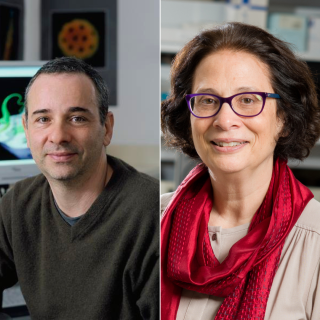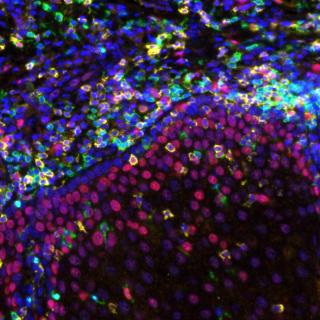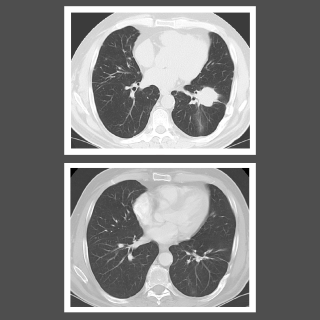News and Events
Proteins Released from the Nuclei of Dying Cancer Cells Promote Tumor Growth
Material released from dying cancer cells, known as tumor cell nuclear expulsion products (TuNEPs), contains specific proteins that promote the growth of neighboring cancer cells. Targeting these proteins could lead to new treatments that hinder cancer spread and improve patient outcomes.
Read MoreClinical trial researching stem cell therapy for acute myeloid leukemia
A clinical trial led by Nirali N. Shah, M.D., M.H.Sc., Lasker Clinical Research Scholar in the Pediatric Oncology Branch, is researching hematopoietic stem cell transplants and therapy for acute myeloid leukemia.
Read MoreAndre Nussenzweig and Sandra Wolin elected to American Academy of Arts and Sciences
Andre Nussenzweig, Ph.D., Chief of the Laboratory of Genome Integrity, and Sandra L. Wolin, M.D., Ph.D., Chief of the RNA Biology Laboratory, have been elected to the American Academy of Arts and Sciences.
Read MoreClinical trial researching chemotherapy for bile duct cancer
A clinical trial led by Jonathan M. Hernandez, M.D., Investigator in the Surgical Oncology Program, is researching chemotherapy for liver-only cholangiocarcinoma.
Read MoreHow immunotherapy before surgery boosts systemic immunity in head and neck cancer
Some evidence suggests that immunotherapy before surgery to remove head and neck tumors can decrease the chances of cancer recurrence, but the reasons for this observation are unknown. New research details how the treatment regimen boosts the number and dispersion of tumor-fighting immune cells throughout the body.
Read MoreClinical trial researching therapy for blood cancers
A clinical trial led by Christopher Kanakry, M.D., Lasker Clinical Research Scholar in the Center for Immuno-Oncology, is researching blood stem cell transplants for blood cancers such as leukemias or lymphomas.
Read MoreClinical trial researching CAR T-cell therapy for leukemia and lymphoma
A clinical trial led by Nirali N. Shah, M.D., M.H.Sc., Lasker Clinical Research Scholar in the Pediatric Oncology Branch, is researching CAR T-cell therapy for leukemias and lymphomas.
Read MoreElaine S. Jaffe receives FASEB Lifetime Achievement Award
Elaine S. Jaffe, M.D., NIH Distinguished Investigator in the Laboratory of Pathology, received the Lifetime Achievement Award from the Federation of American Societies for Experimental Biology (FASEB) for her pioneering work in the fields of hematology and hematopathology. The award recognizes her influential work in lymphoma diagnostics, as well as her devotion to education and mentorship.
Read MoreClinical trial researching therapy for aggressive gliomas
A clinical trial led by Sadhana Jackson, M.D., Adjunct Investigator in the Pediatric Oncology Branch, is researching a drug therapy for diffuse midline gliomas, a type of aggressive brain tumor.
Read MoreNIH study finds that immunotherapy substantially increases survival of people with lymphomatoid granulomatosis
Results from a clinical trial conducted by CCR researchers show that people with low-grade lymphomatoid granulomatosis who are treated with interferon-alpha, a type of immunotherapy, can live for decades after diagnosis. Lymphomatoid granulomatosis is a rare precancerous condition triggered by Epstein-Barr virus infection. The findings suggest that immunotherapy can prevent the progression of low-grade disease to high-grade disease, which has a poorer prognosis and can quickly turn into an aggressive and fatal B-cell lymphoma.
Read MoreClinical trial researching therapy for HIV-associated blood cancers
A clinical trial led by Kathryn A. Lurain, M.D., M.P.H., Assistant Research Physician in the HIV and AIDS Malignancies Branch, is researching a combination drug therapy for HIV-associated B-cell non-Hodgkin lymphomas.
Read More








